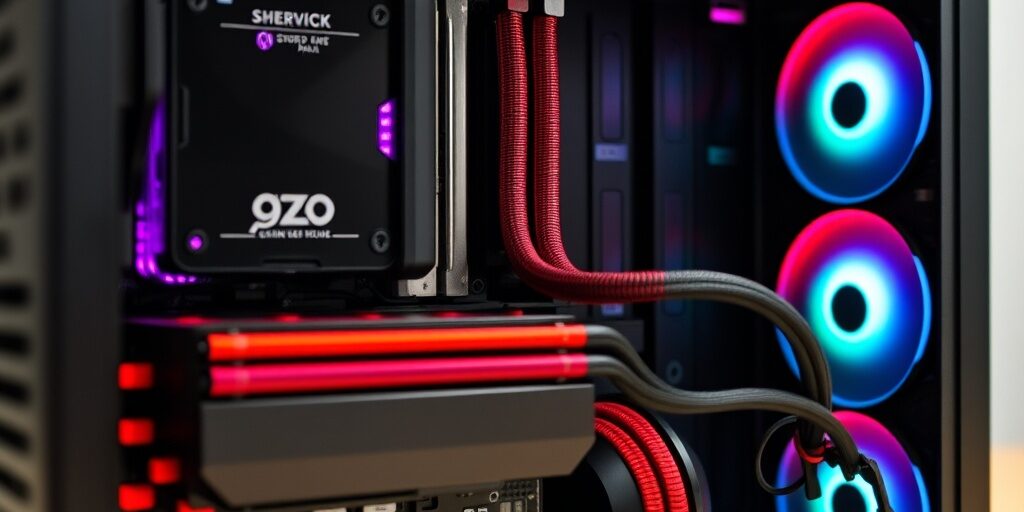For anyone seeking the ultimate computing experience, the decision to build a custom PC or buy a pre-built system is critical. While pre-built systems offer convenience, building a custom PC delivers a level of performance, customisation, and long-term value unmatched by factory-built machines.
This guide explores the many benefits of building a custom PC, providing insights into why it’s a smarter choice for gamers, professionals, and casual users alike. From cost efficiency and performance enhancements to the joy of personalisation, we’ll cover everything you need to know to make an informed decision.
Benefits of Building a Custom PC
1. Cost Efficiency
Avoiding Overpriced Features
- Pre-built PCs often include features you may not need, inflating the price. Building your own allows you to allocate your budget efficiently.
- Focus on performance-oriented components like processors, GPUs, and memory while skipping unnecessary frills.
Better Value for Money
- By purchasing individual parts, you eliminate the markups associated with brand names and pre-assembly.
- Custom builds often outperform pre-built systems in the same price range due to optimised spending.
Future Savings
- Custom PCs are easier to upgrade, saving you from the expense of purchasing an entirely new system down the line.
2. Enhanced Performance
Tailored for Specific Needs
- A custom PC allows you to choose components suited to your specific tasks, whether gaming, video editing, or general use.
- High-end GPUs and CPUs ensure optimal performance for resource-intensive activities.
Advanced Cooling Solutions
- Include premium cooling systems, such as liquid cooling, for better heat management, ensuring stable performance even during heavy usage.
Overclocking Options
- Custom PCs often support overclocking, allowing you to push your hardware beyond factory limits for increased speed and efficiency.
3. Customisation Options
Unique Aesthetic Choices
- Choose from a variety of cases, RGB lighting setups, and cable management options to reflect your style.
- Customise every aspect of your build, from the external appearance to internal configurations.
Feature Flexibility
- Add specific features, such as dual monitors, advanced sound cards, or additional storage drives, based on your requirements.
4. Quality Control and Durability
Control Over Component Quality
- Handpick parts from reputable brands, ensuring better reliability and performance.
- Avoid subpar components often found in budget pre-built systems.
Individual Warranties
- Each component typically comes with its own warranty, offering more comprehensive protection than a single-system warranty.
5. Upgradeability and Longevity
Modular Design
- Upgrade individual components like RAM or GPU without replacing the entire system.
- Custom PCs are built to adapt to evolving technology, extending their lifespan significantly.
Future-Proofing
- Choose parts with future compatibility in mind, such as motherboards that support newer processors or GPUs.
6. Learning Experience and Personal Satisfaction
Technical Skill Development
- Building your PC provides valuable hands-on experience with computer hardware and software.
- Learn about component compatibility, assembly techniques, and system optimisation.
Sense of Accomplishment
- Completing a custom build offers a unique sense of achievement, knowing you’ve created a system tailored to your needs.
Challenges of Building a Custom PC
1. Time Investment
Research and Preparation
- Finding compatible components and understanding assembly processes requires time and effort.
Assembly Process
- Building a PC can take several hours, especially for beginners.
2. Learning Curve
Technical Knowledge Required
- Beginners may face challenges in understanding technical specifications and compatibility.
Troubleshooting Skills
- Resolving issues like BIOS updates, driver installations, or system errors can be daunting initially.
3. Compatibility Concerns
Hardware Compatibility
- Ensuring all components, such as CPUs, GPUs, and RAM, are compatible with the motherboard is essential.
Power Supply and Cooling
- Choosing the right power supply unit (PSU) and cooling solution for your build requires careful planning.
Comparing Custom PCs to Pre-Built Systems
1. Performance and Value
Optimised Builds
- Custom PCs often outperform pre-built systems by focusing on specific use cases.
Avoiding Bottlenecks
- Select parts that work seamlessly together to eliminate performance bottlenecks.
2. Cost Analysis
Initial Investment vs Long-Term Savings
- While custom PCs may require a higher upfront investment, their long-term savings through upgrades outweigh the initial costs.
No Hidden Costs
- Avoid unnecessary add-ons, subscription software, or bloatware that often accompany pre-built systems.
3. Long-Term Benefits
Greater Lifespan
- Regular upgrades keep custom PCs functional and relevant for years.
Resale Value
- Quality components retain their value better, making custom PCs a more worthwhile investment.
How to Build a Custom PC
1. Planning and Budgeting
Define Your Purpose
- Identify the primary use of your PC—gaming, work, or general computing.
Allocate Budget
- Distribute funds across components based on their importance, prioritising CPUs and GPUs for gaming or productivity tasks.
2. Selecting Components
Essential Parts
- CPU and GPU: Choose models that meet your performance needs.
- Motherboard: Ensure compatibility with other components and future upgrades.
- Storage: Combine SSDs for speed and HDDs for capacity.
Additional Components
- Invest in quality cooling systems, power supplies, and peripherals.
3. Assembly Process
Tools and Preparation
- Gather necessary tools, such as screwdrivers, anti-static wrist straps, and cable ties.
Step-by-Step Assembly
- Install the CPU and RAM on the motherboard.
- Attach the motherboard to the case.
- Connect the PSU, GPU, and storage drives.
- Organise cables and test the system.
4. Maintenance and Troubleshooting
Regular Updates
- Keep drivers, BIOS, and operating systems up to date for optimal performance.
System Cleaning
- Periodically clean internal components to prevent dust build-up and overheating.
Conclusion and Call to Action
Building a custom PC is a rewarding experience that offers unparalleled benefits in performance, customisation, and long-term value. While it may involve an initial investment of time and effort, the advantages far outweigh the challenges.
If you’re ready to build your dream PC but need expert guidance, the team at Perth Computer Experts is here to help. Whether you require assistance selecting the right components or need professional support during assembly, we’re just a call away. Contact us today to get started on your custom PC journey!




